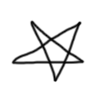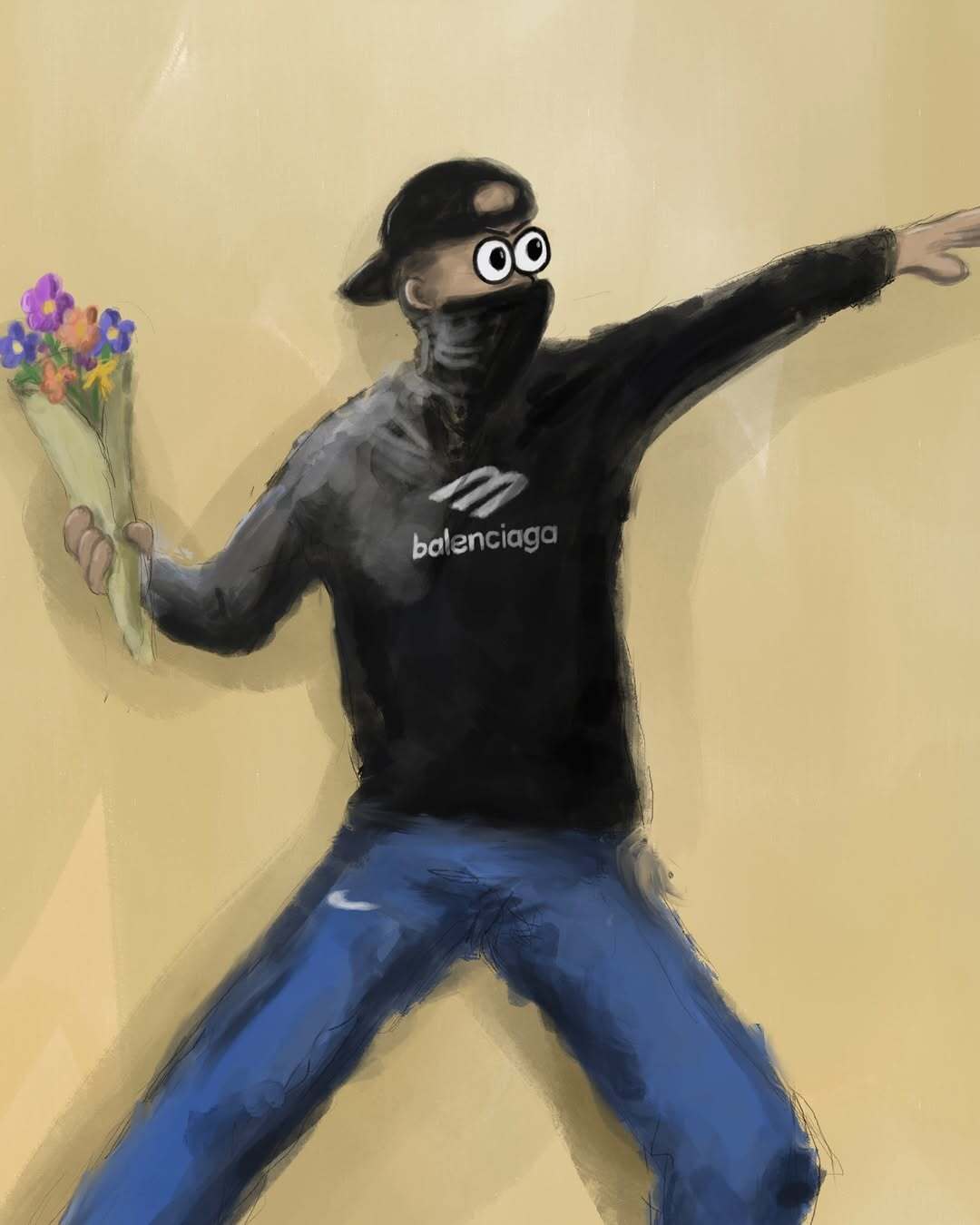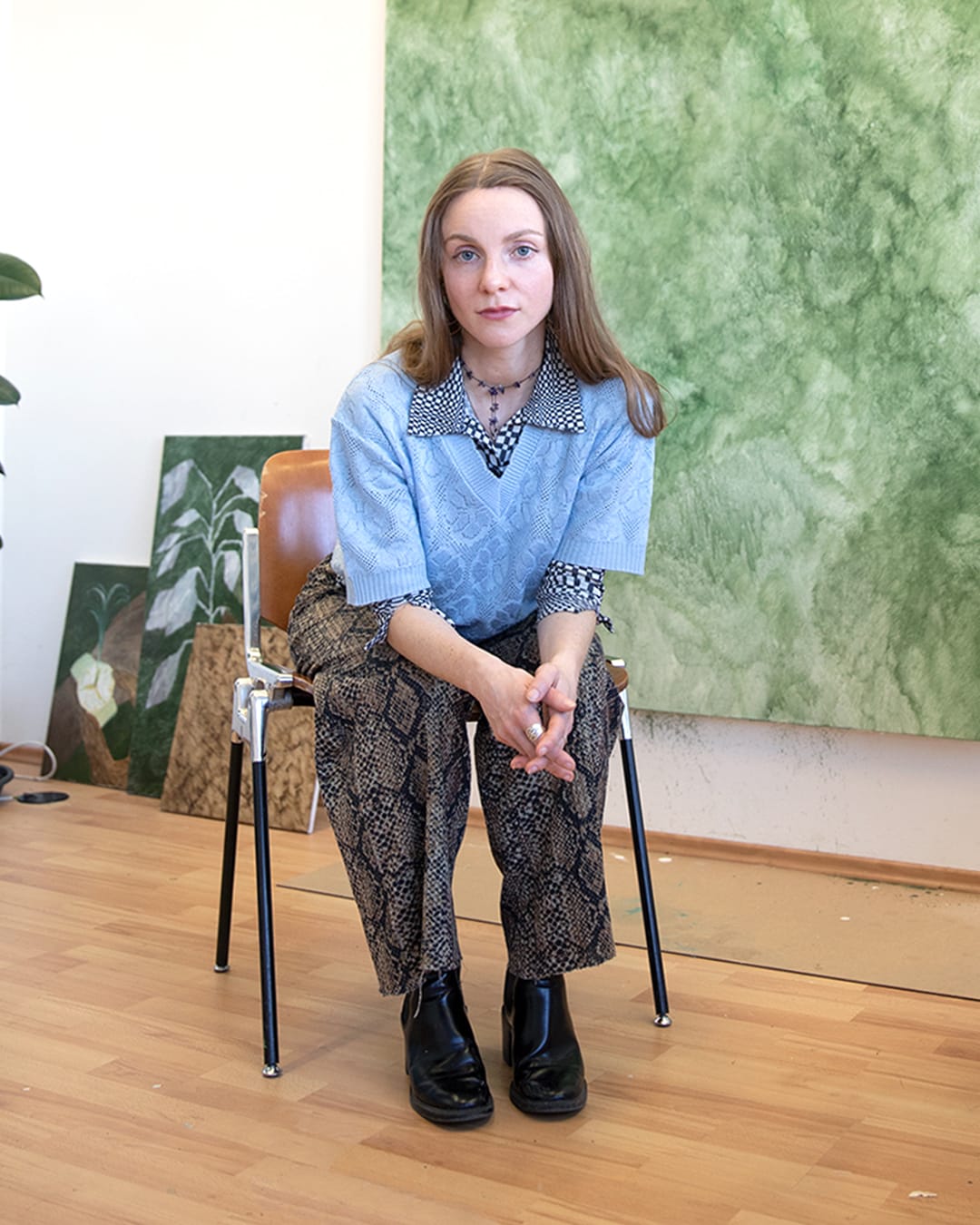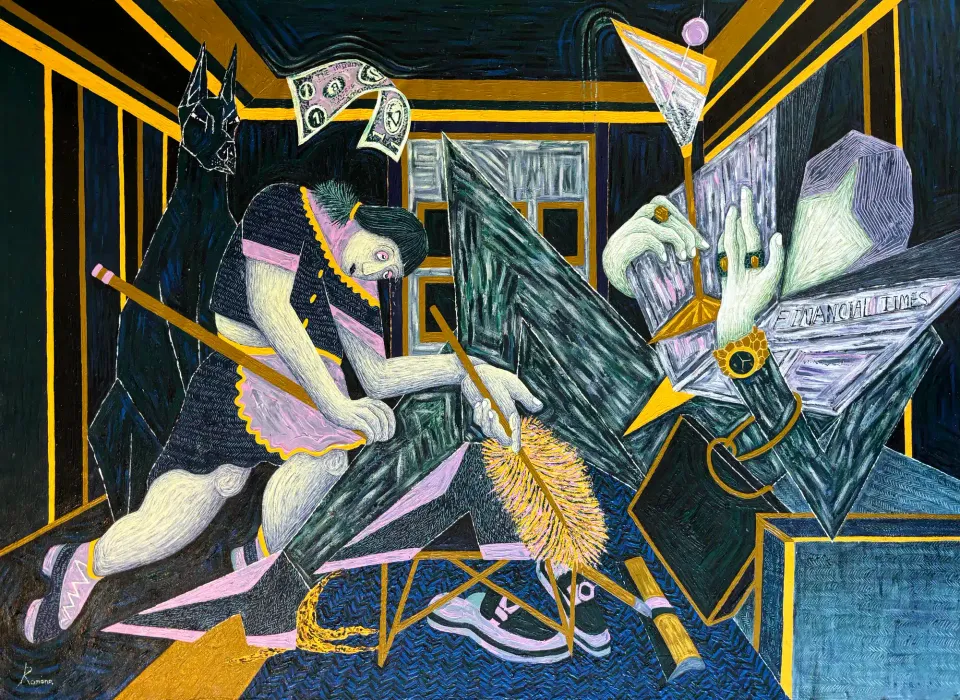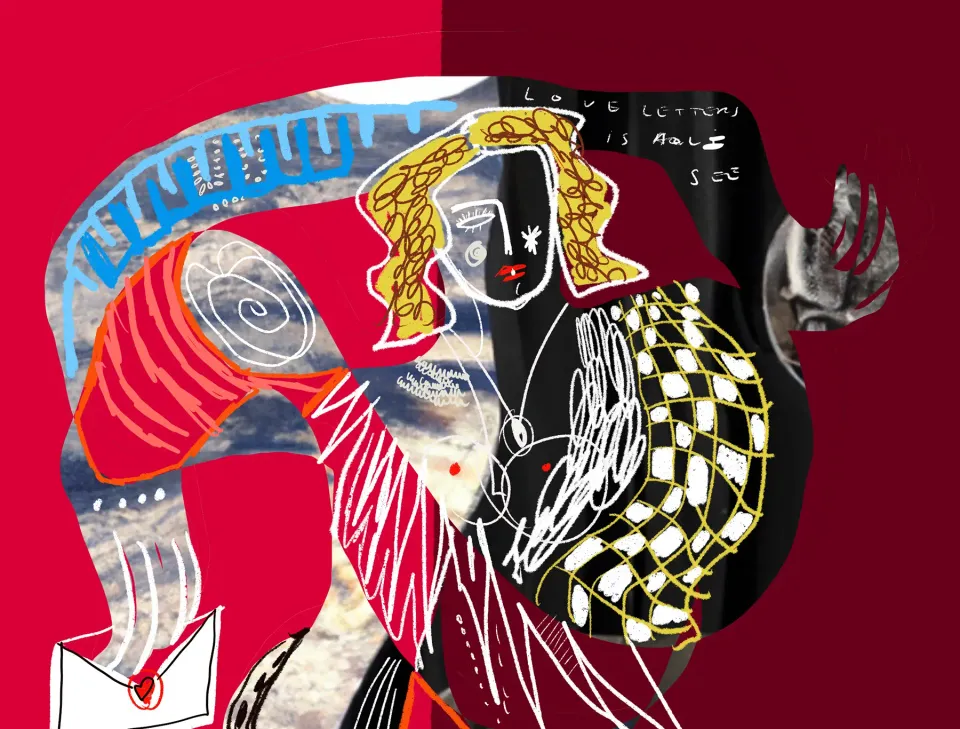Georg Pinteritsch: The Time-Traveling Artist Bridging Medieval and Modern
Explore Georg Pinteritsch's art where medieval themes blend with contemporary practices in his dynamic paintings
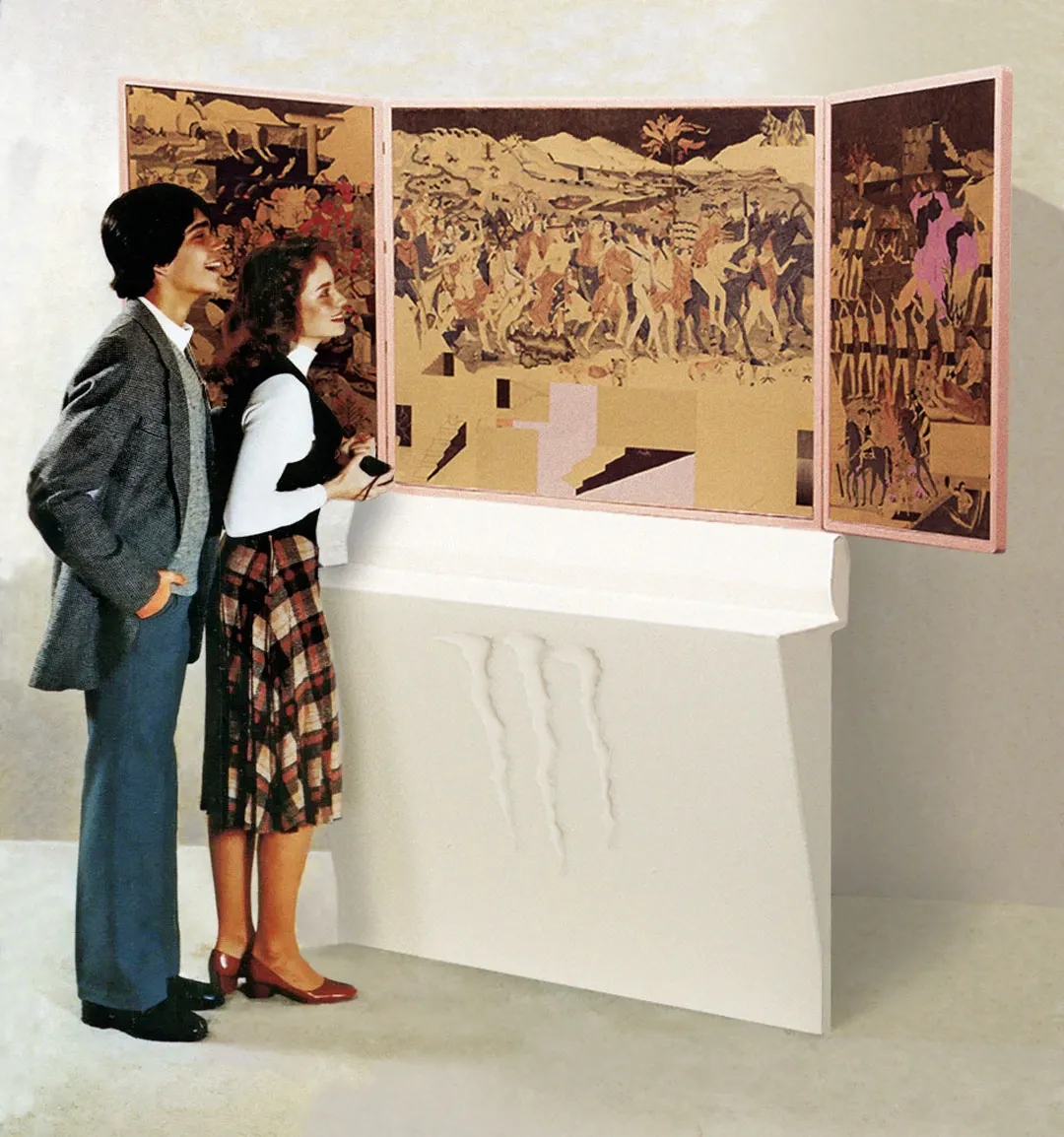
Georg Pinteritsch's Abstract Take on Medieval Aesthetics
In the bustling world of contemporary art, where the shock of the new often overshadows the whispers of the past, Georg Pinteritsch stands as a captivating anomaly.
Georg Pinteritsch's work is currently on display in the group show "Cave" at Alte Handelsschule in Leipzig, available until July 20, 2024.
Upcoming exhibitions include an online exhibition via MEPAINTSME, running from July 18, 2024, to August 21, 2024, and a show at the Vasarely Museum in Budapest under the auspices of MAERZ-OSAS, scheduled from mid-September 2024 through the end of January 2025.
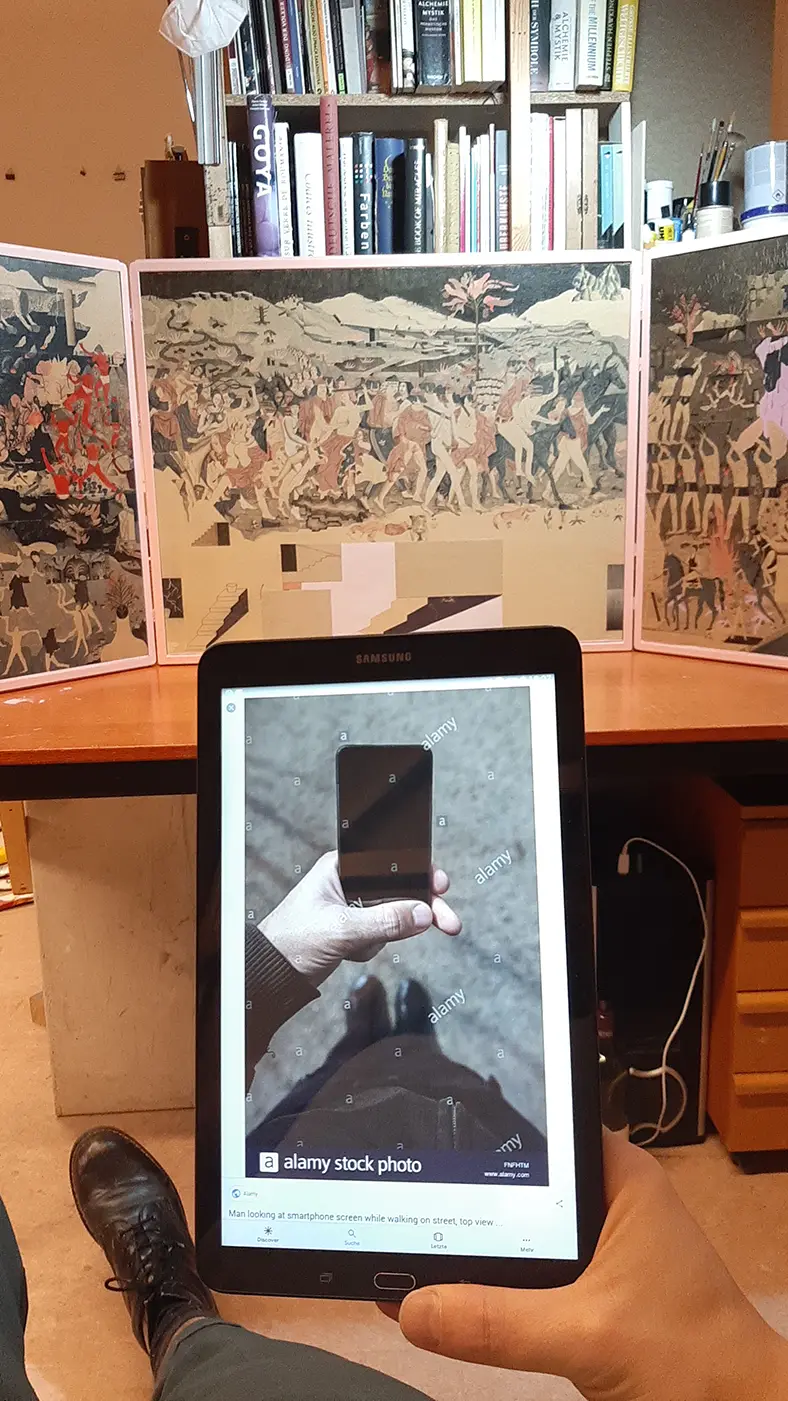
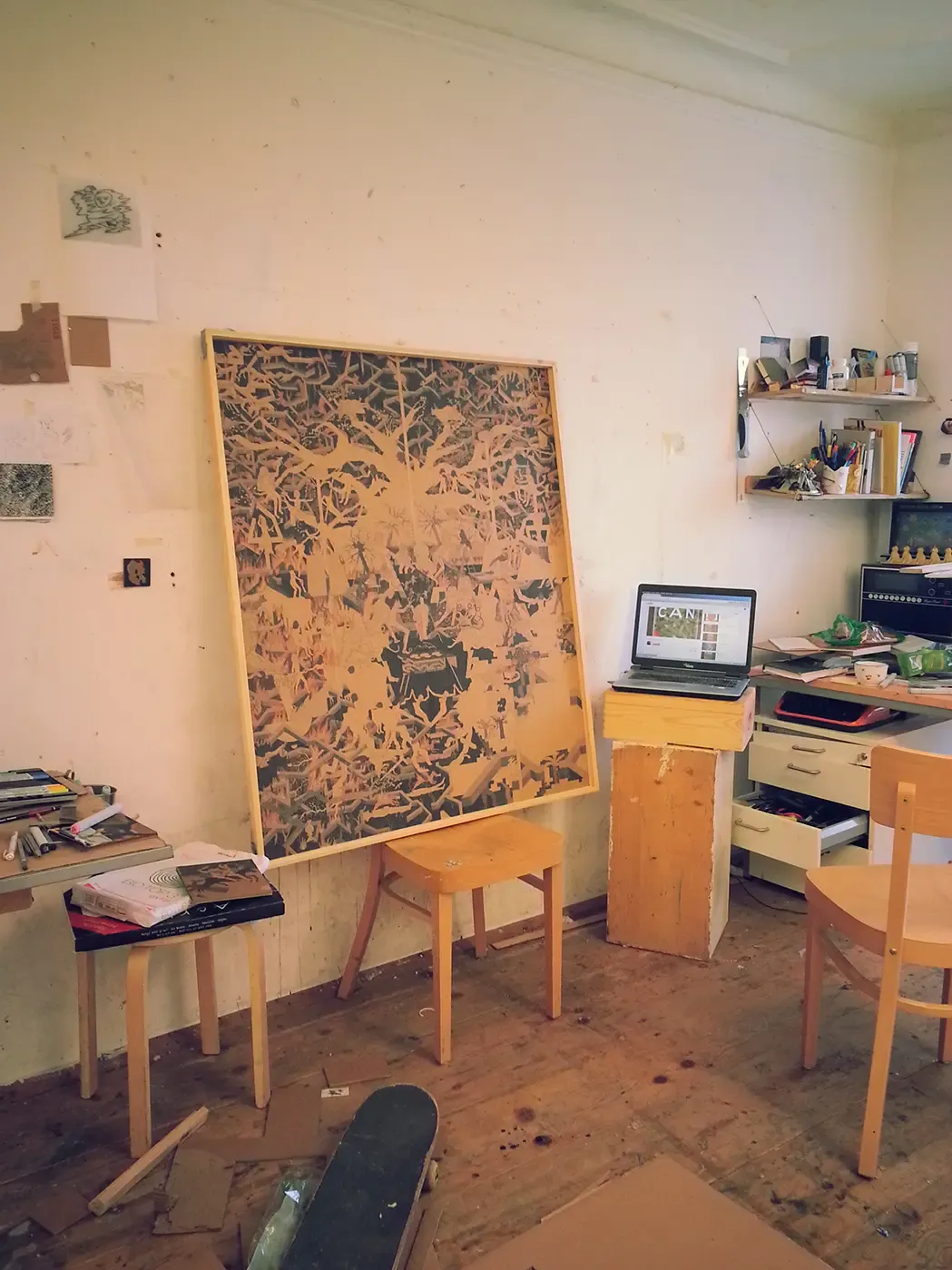
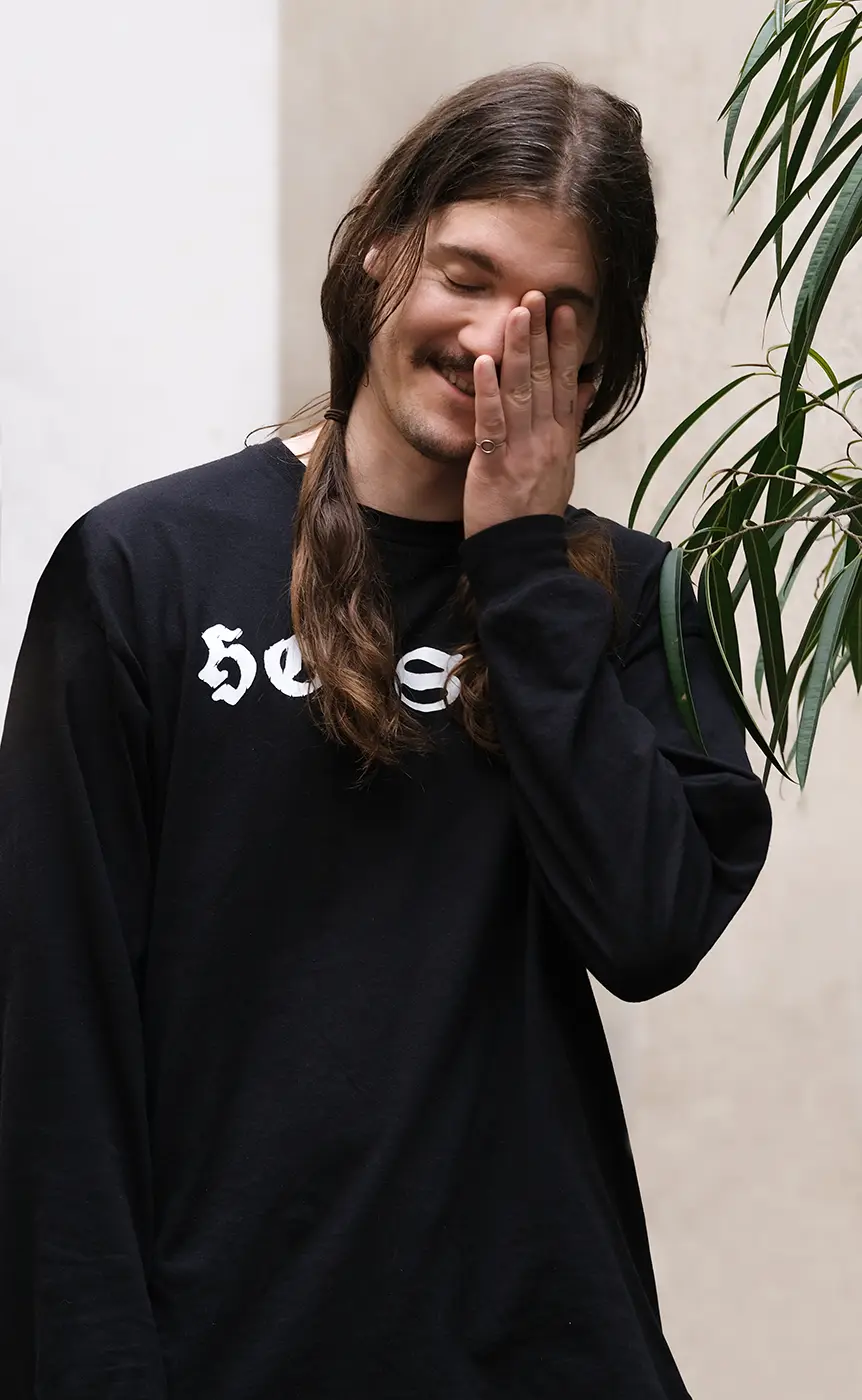
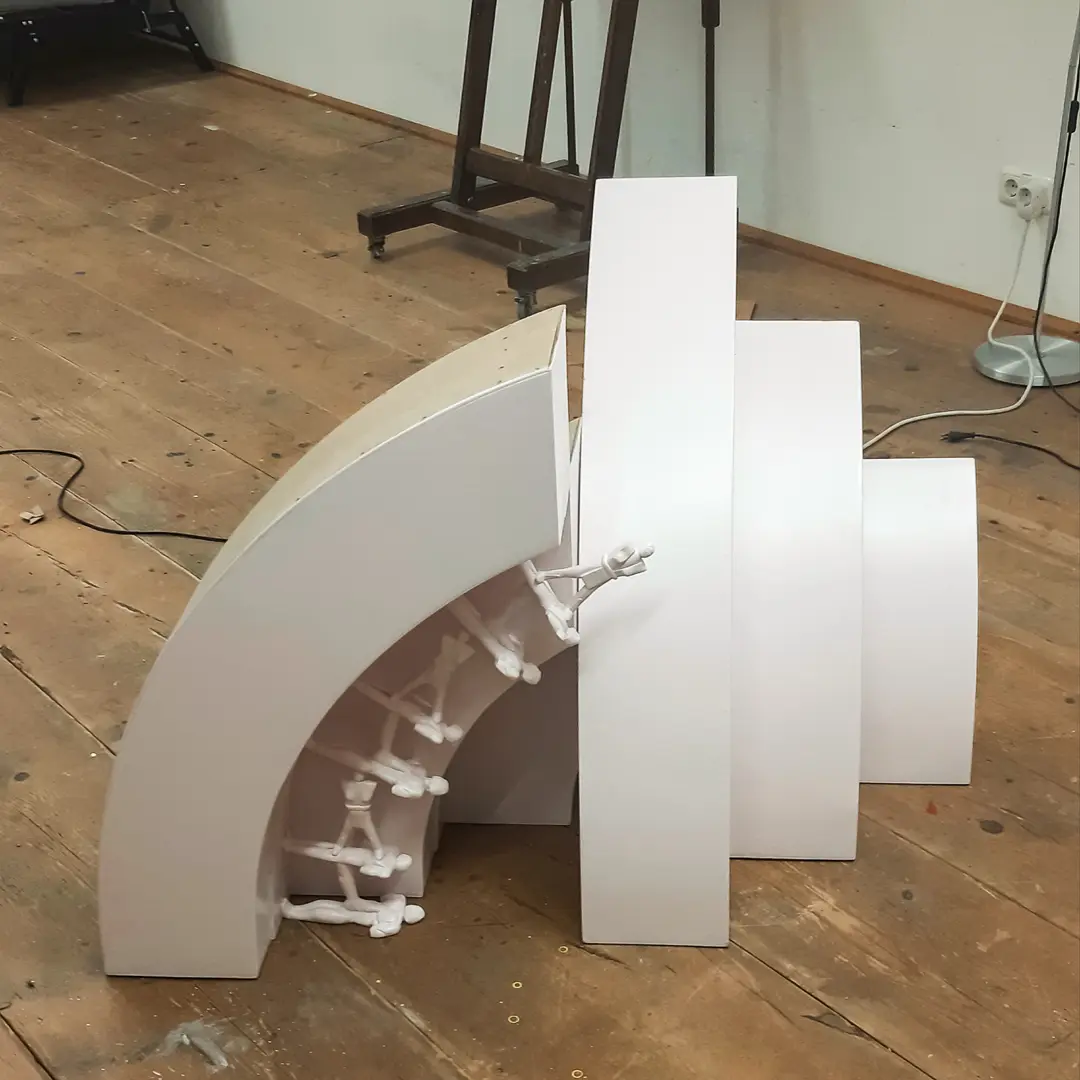
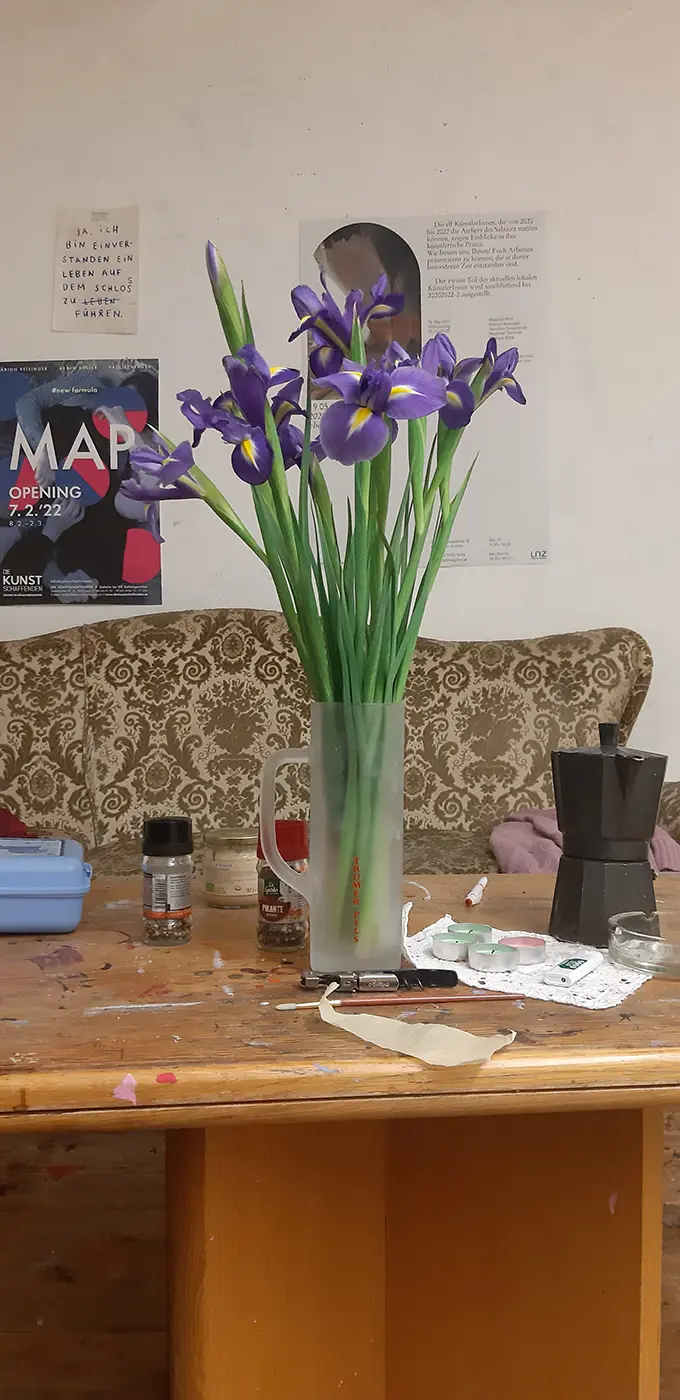
Georg Pinteritsch: Insight into his studio. Explore the artist's creative process and glimpse upcoming artworks in development. Image courtesy of the artist
Born in 1986 in Villach, Austria, this innovative artist has carved out a unique niche by deftly weaving together the seemingly disparate threads of medieval woodcuts and geometric abstraction.
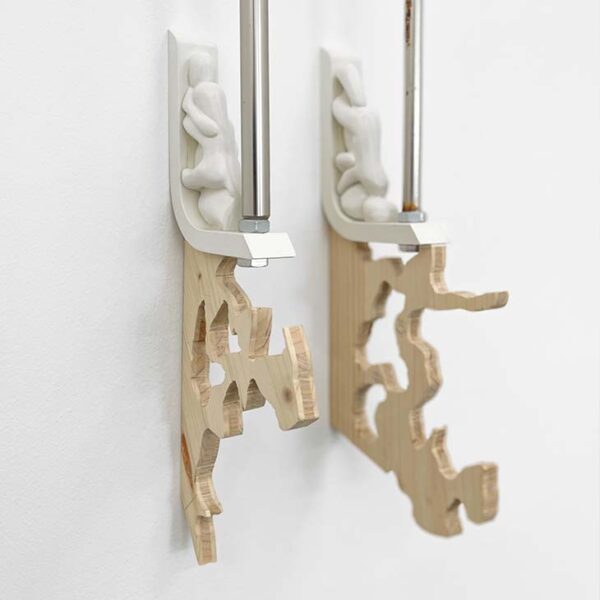
Website Georg Pinteritsch
The result? A visual feast that challenges perceptions and invites viewers to lose themselves in a labyrinth of lines, symbols, and unspoken narratives.
The Alchemist of Aesthetics
Picture, if you will, a monk from the Middle Ages stumbling into a Mondrian exhibition.
The resulting artistic offspring might look something like Pinteritsch's work.
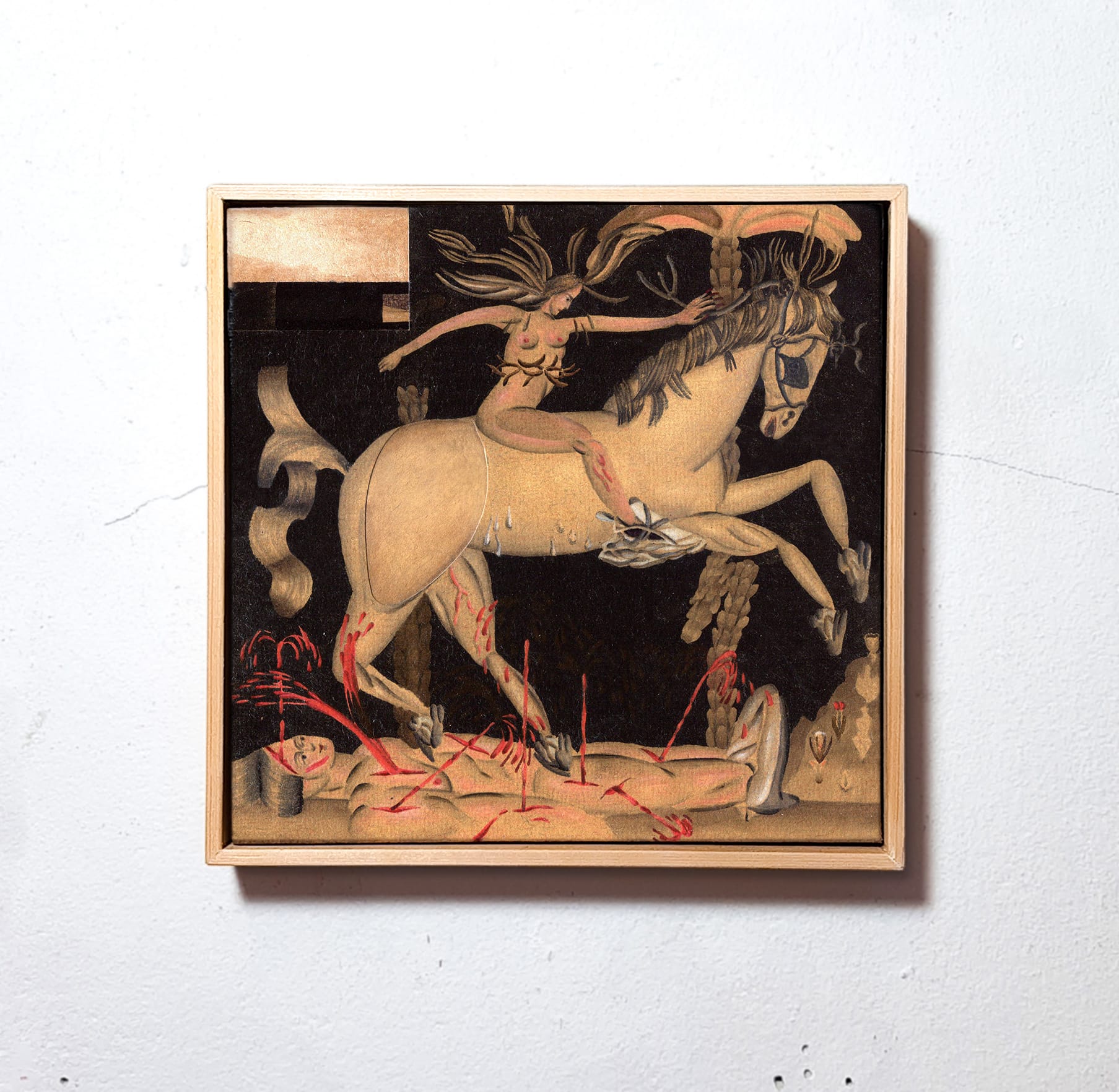
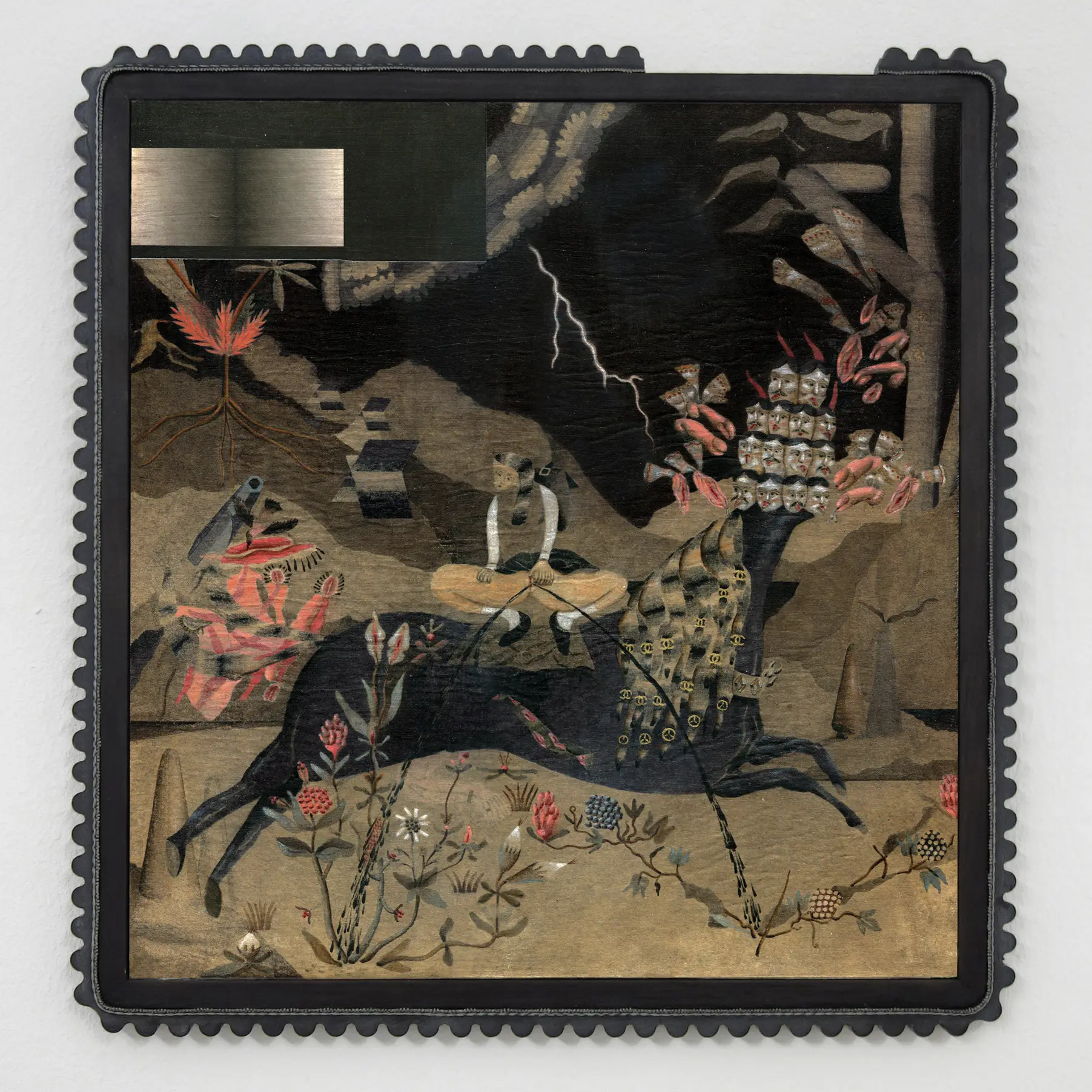
After honing his craft at the University of Art and Design Linz from 2008 to 2015, Pinteritsch emerged with a style that defies easy categorization.
His canvases are a playground where the past and present collide in the most delightful ways.
Medieval woodcuts, with their bold lines and symbolic gestures, dance cheek to cheek with rigorous geometric abstractions.
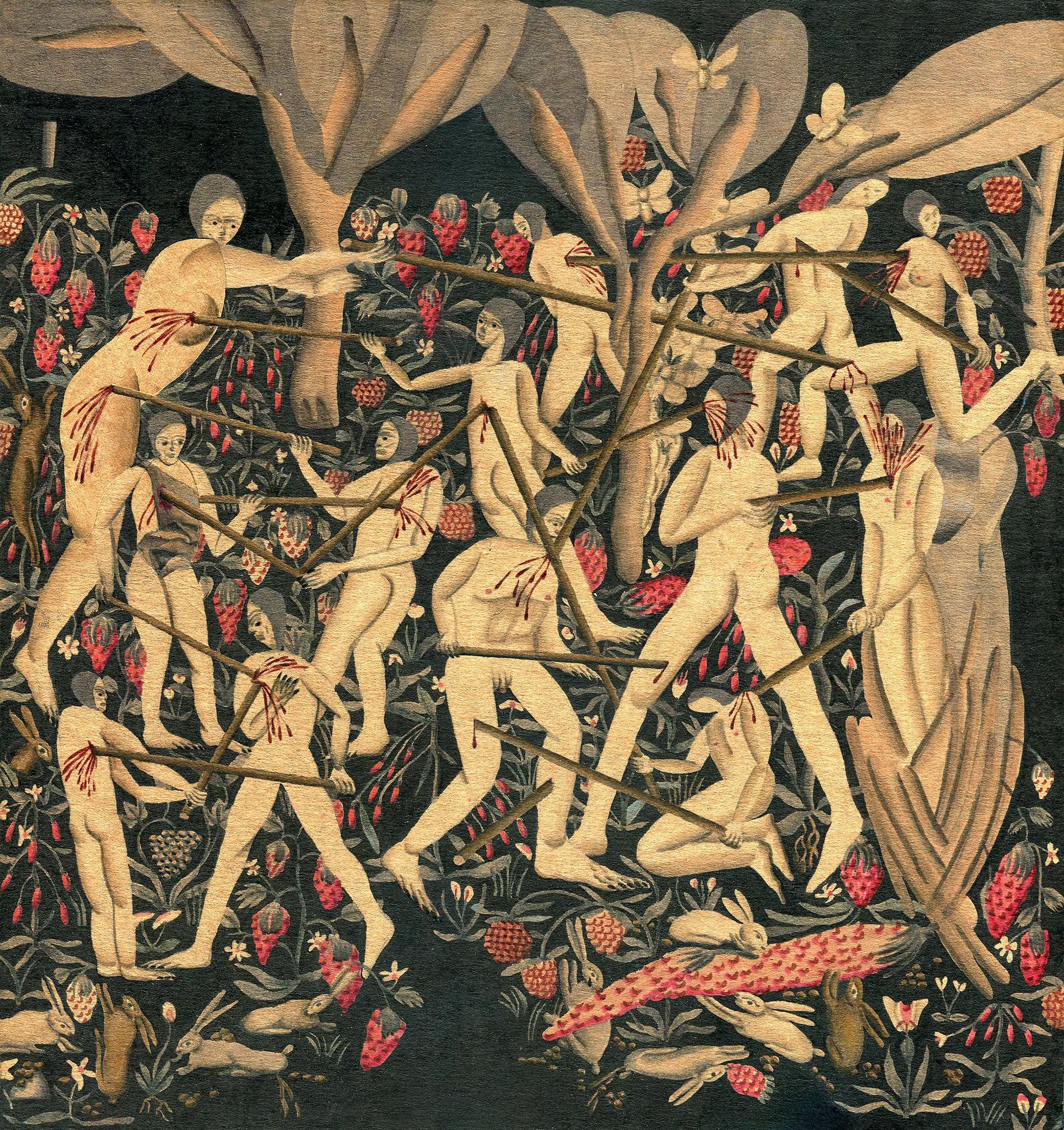
It's as if the artist has taken a time machine, scooped up the best bits of art history, and remixed them into something entirely new and utterly captivating.
The Line: A Love Story
If Pinteritsch's art were a novel, the line would be its protagonist. These aren't just any lines, mind you.
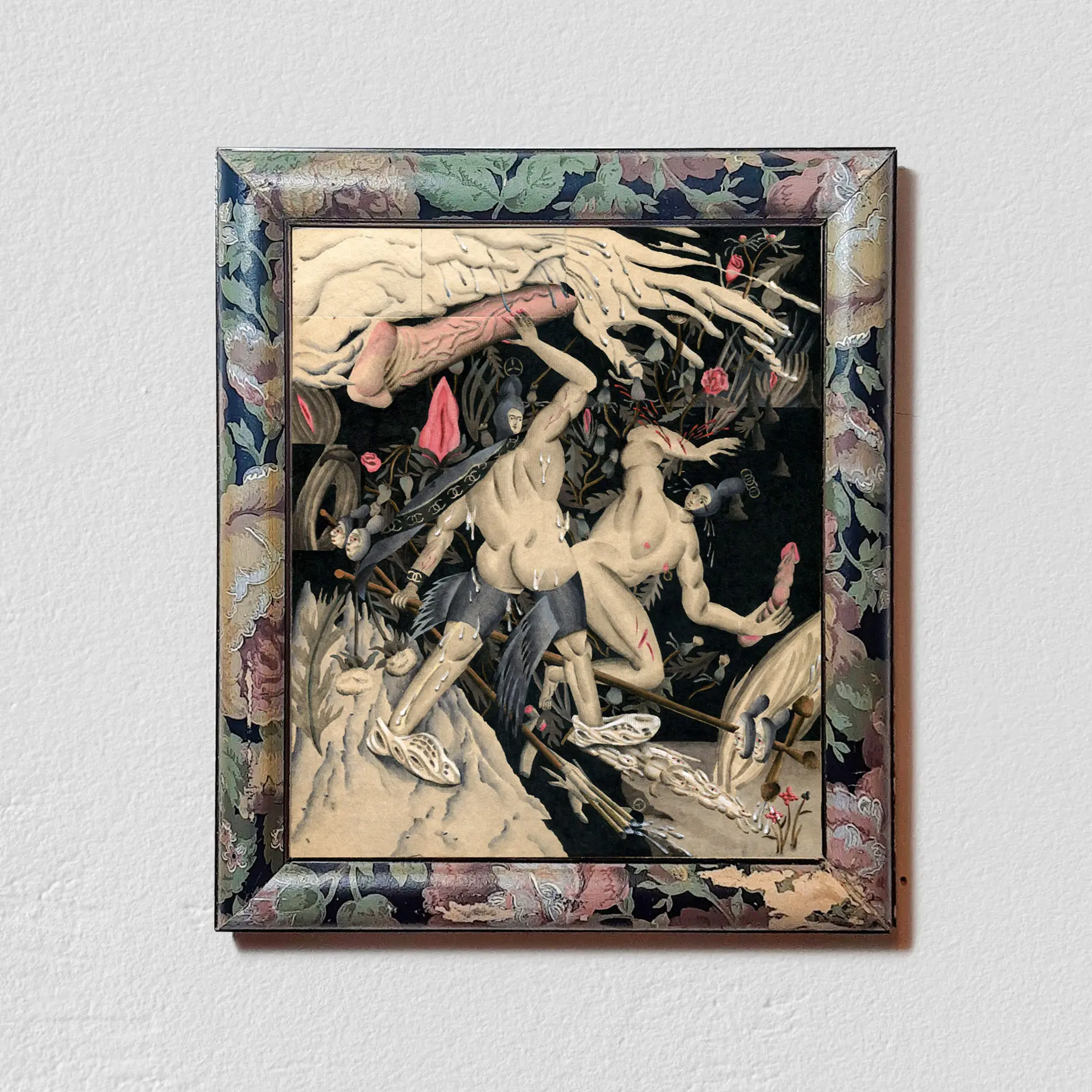
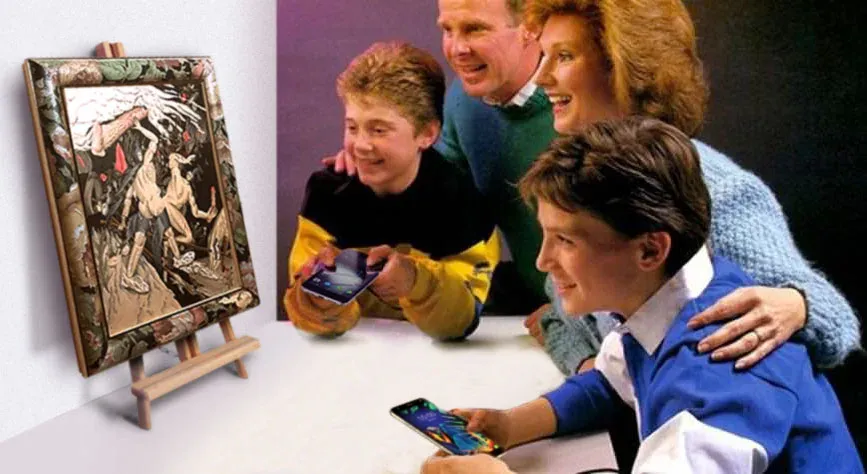
Georg Pinteritsch: Militär Kunst mit Blumenrahmen: Marker, ink, colored pencils, and lacquer on paper on wood, 25x23 cm,
They're lines with personality, with purpose, with pizzazz. They divide and conquer, creating a visual rhythm that guides the eye on a merry chase across the canvas.
But these lines are more than mere dividers. They're the invisible scaffolding that holds Pinteritsch's strange rituals and unnamed places together.
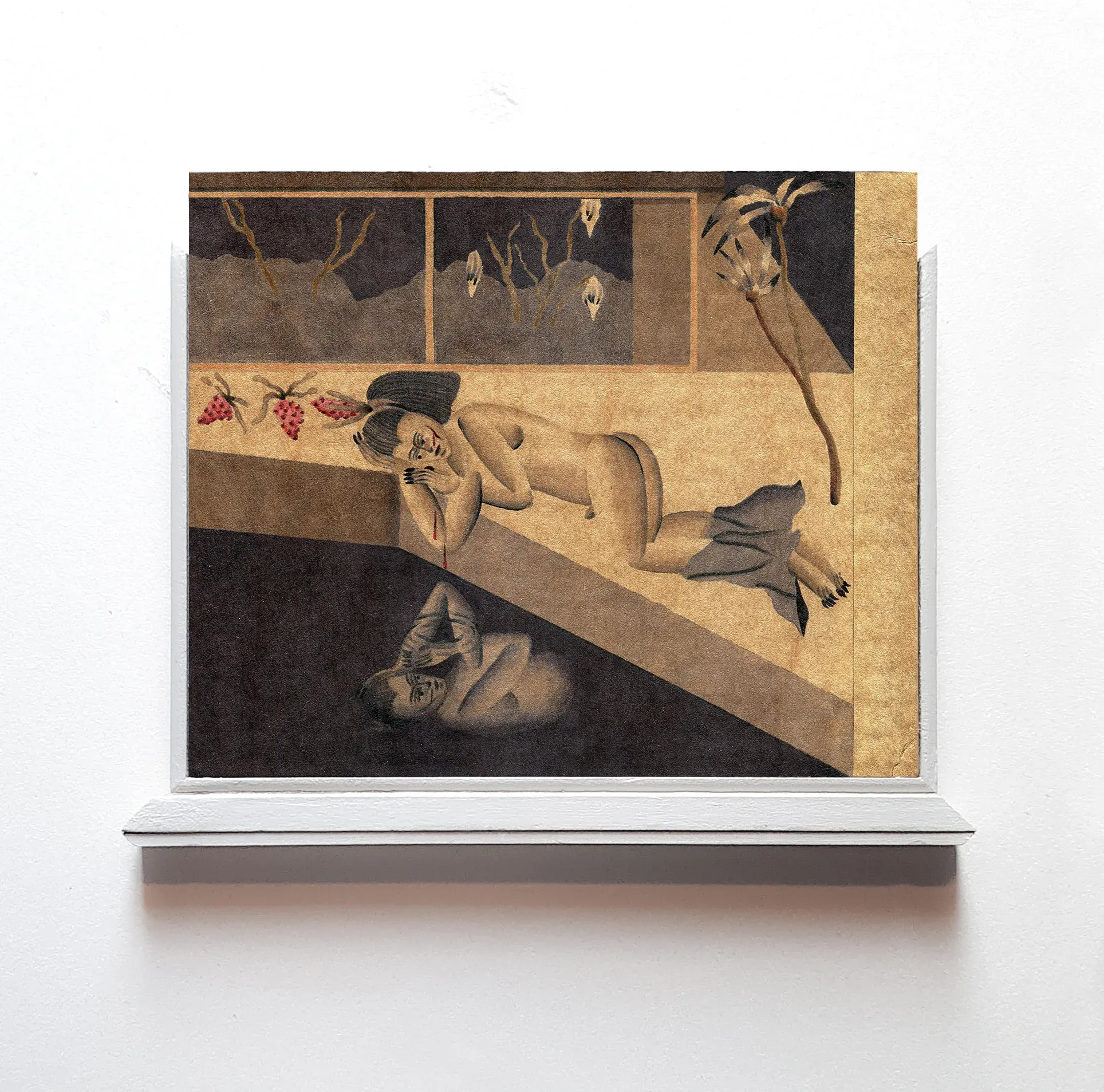
They're the tightrope on which symbolic motifs and existential questions perform their high-wire act.
In Pinteritsch's hands, the line becomes a tool for exploring societal and technological developments, a way of questioning how we perceive the world around us.
The Art of Slow in a Fast-Paced World
In an era where art can be created with the click of a mouse and viewed with the swipe of a finger, Pinteritsch's approach is refreshingly, almost rebelliously, slow.
His paintings, often small in size, can take months to complete. It's a process he likens to unconsciously kneading together fragments of tickets or bills found in his pockets, warping and rolling them into new forms.
"The best pictures are always the ones that can grow naturally," Pinteritsch muses in his artist statement.
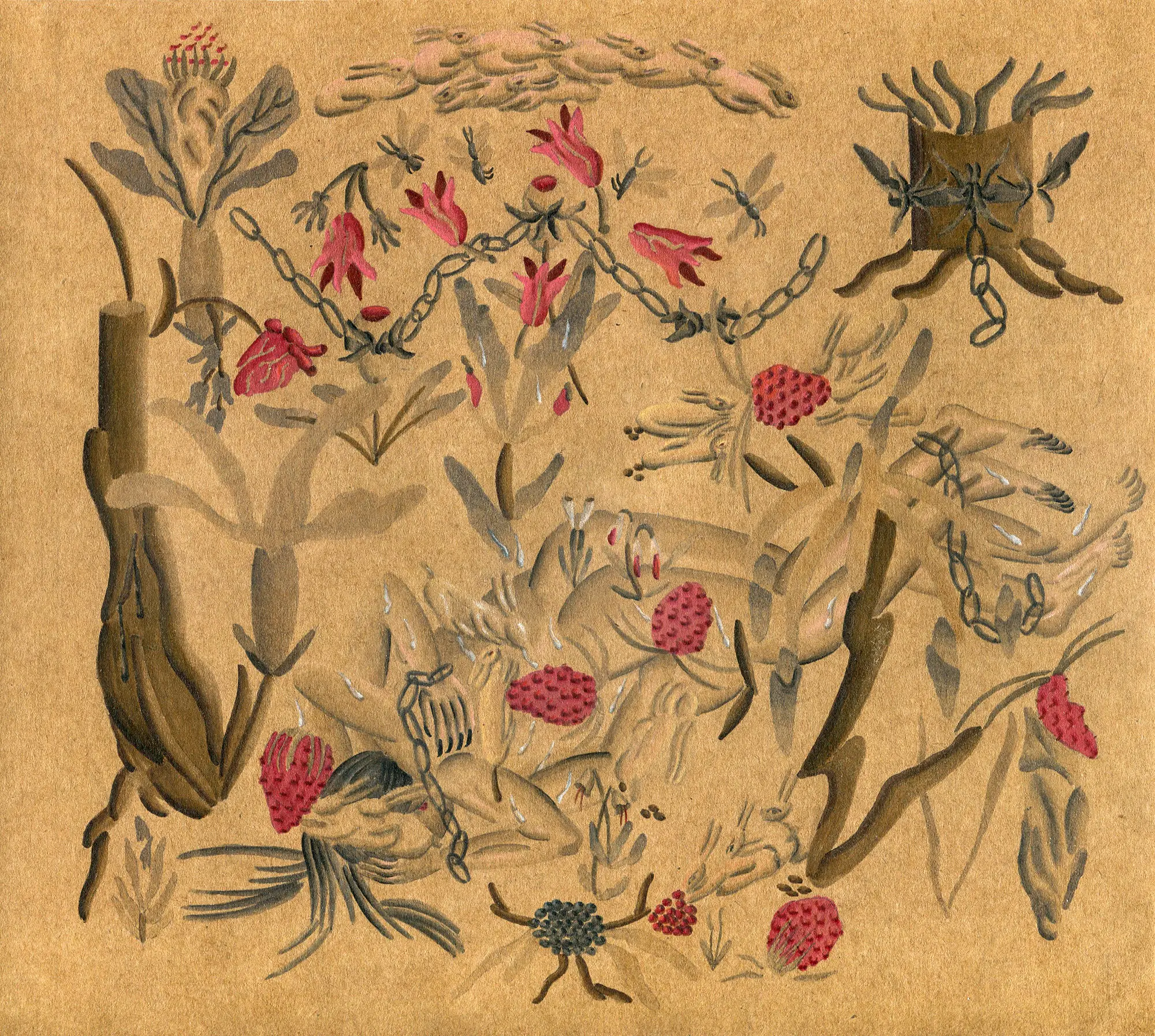
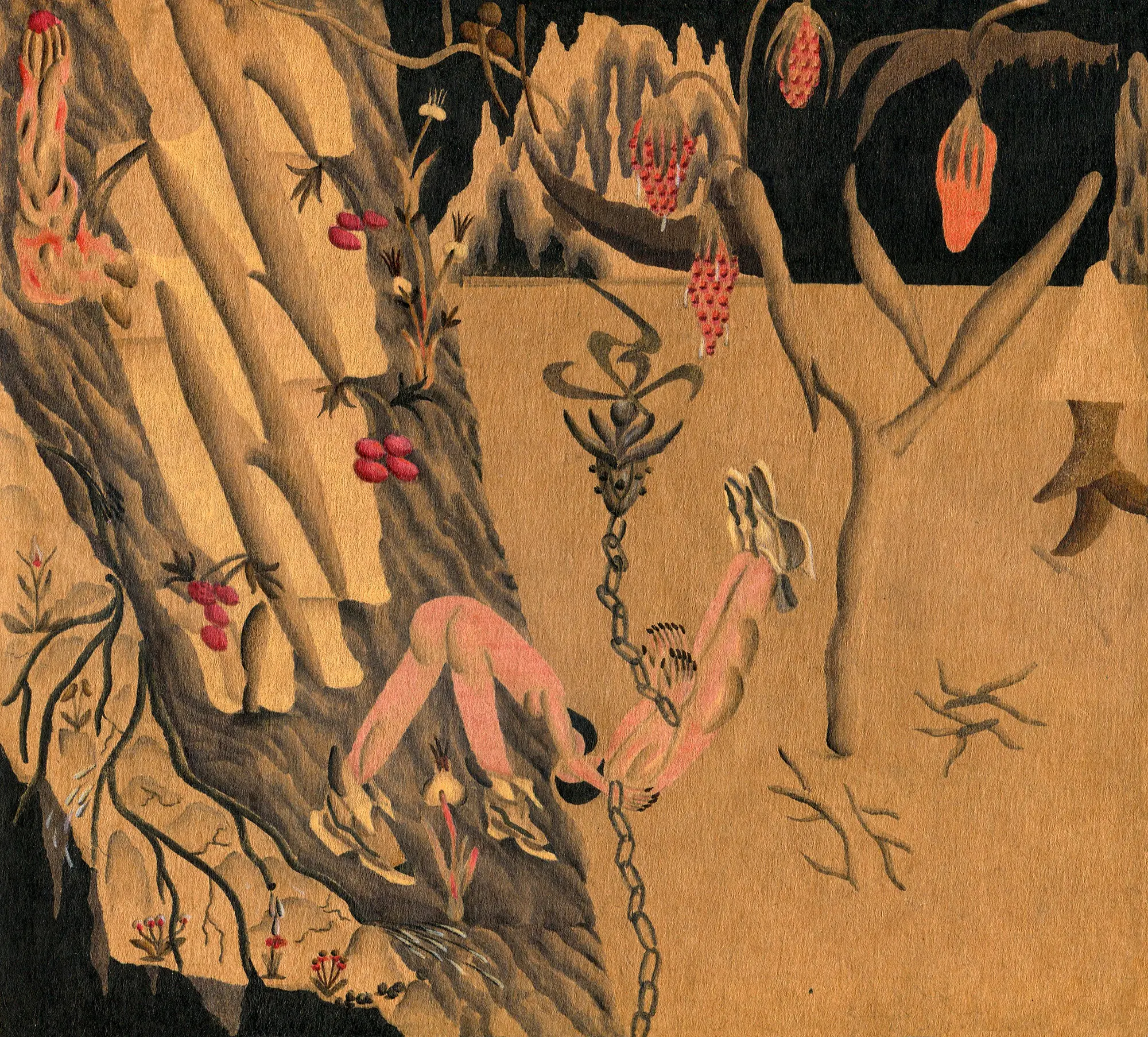
"However, they also tend to be the biggest challenges in the process."
This dedication to slow, deliberate creation in a world of instant gratification is both a meditation and a form of protest.
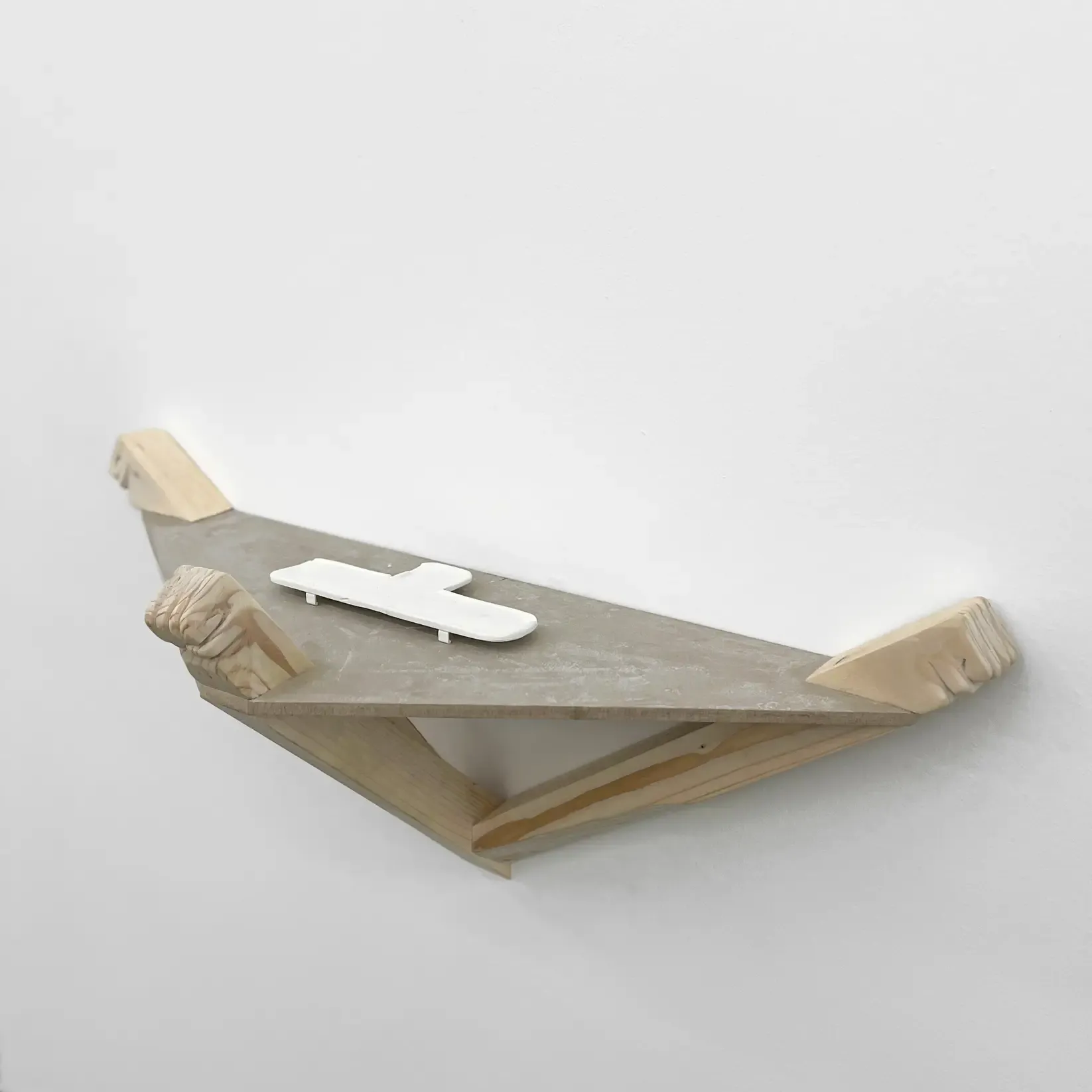
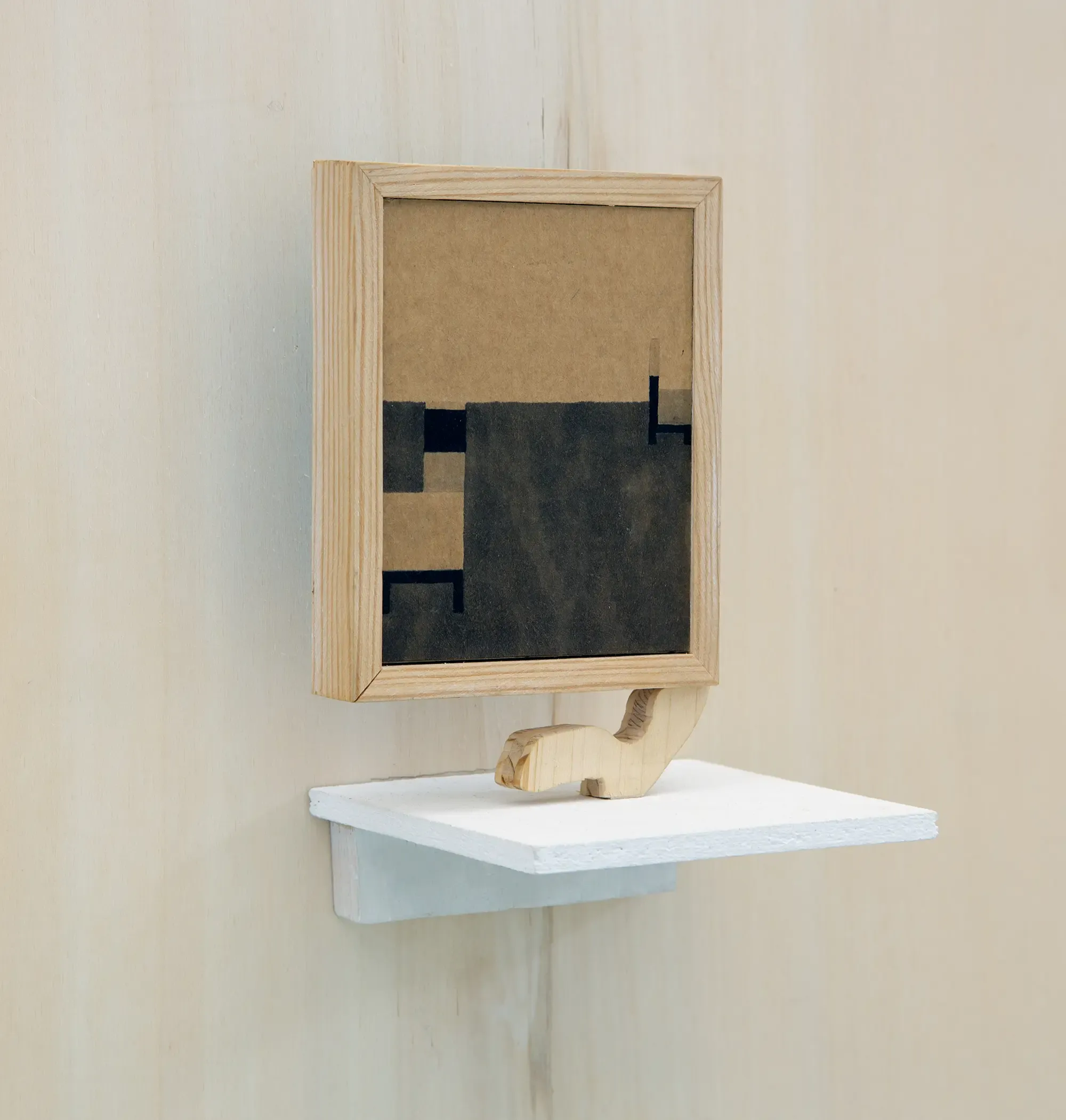
It's a reminder that sometimes, the most powerful statements are made not with a shout, but with a whisper.
Medieval Madness Meets Modern Mischief
Pinteritsch's work is a testament to the enduring influence of medieval art.
The religious motifs, the introduction of perspective in Gothic painting, the combination of painting with graphic techniques like woodcuts – all these elements find their way into his pieces, albeit in abstract form.
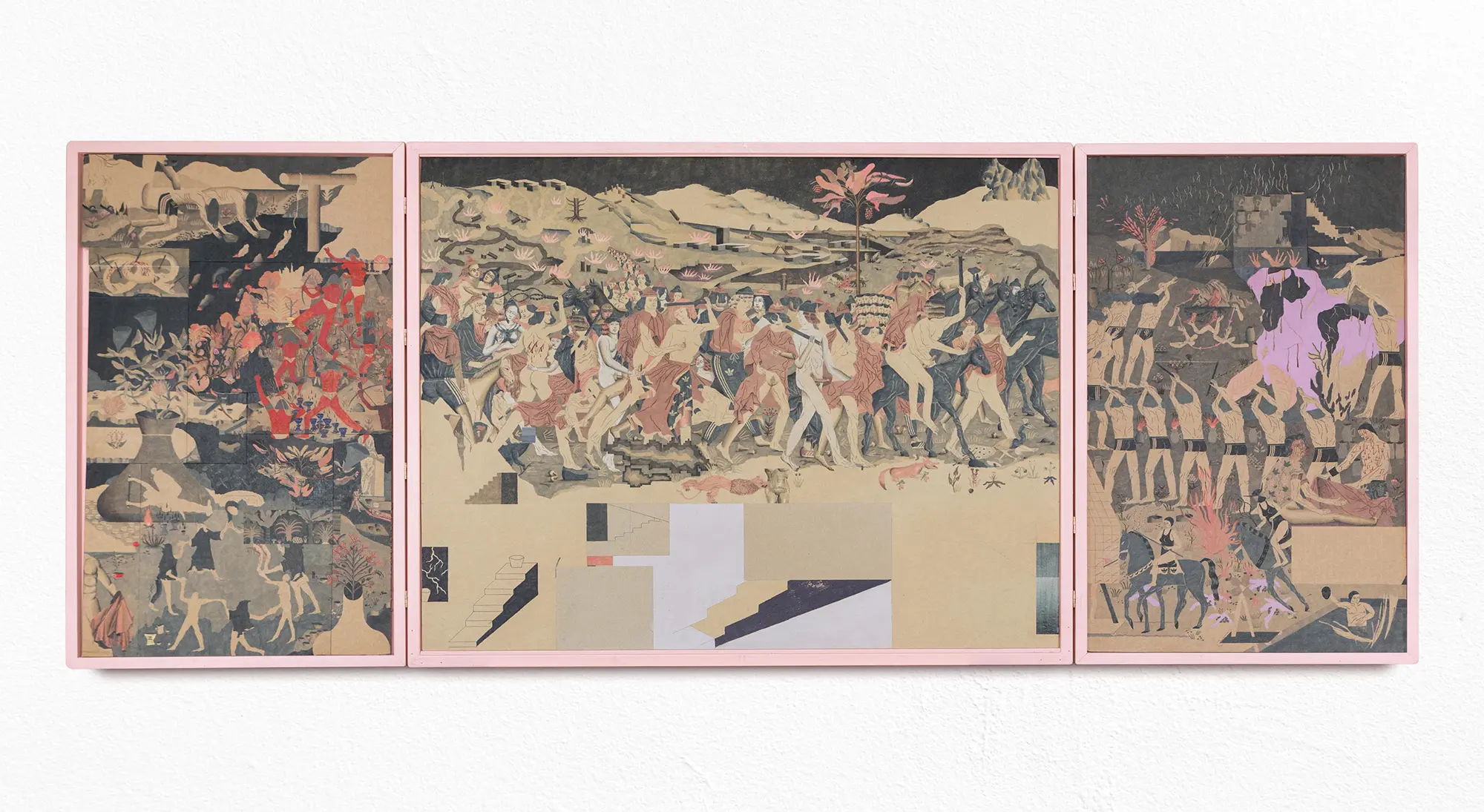
But this isn't some dry, academic exercise in art history.
Pinteritsch takes these elements – the low naturalism, high symbolism, gold grounds, hierarchical perspective, flat painting style with powerful outlines, symmetry-emphasized arrangements, and exaggerated gestures – and gives them a contemporary twist.
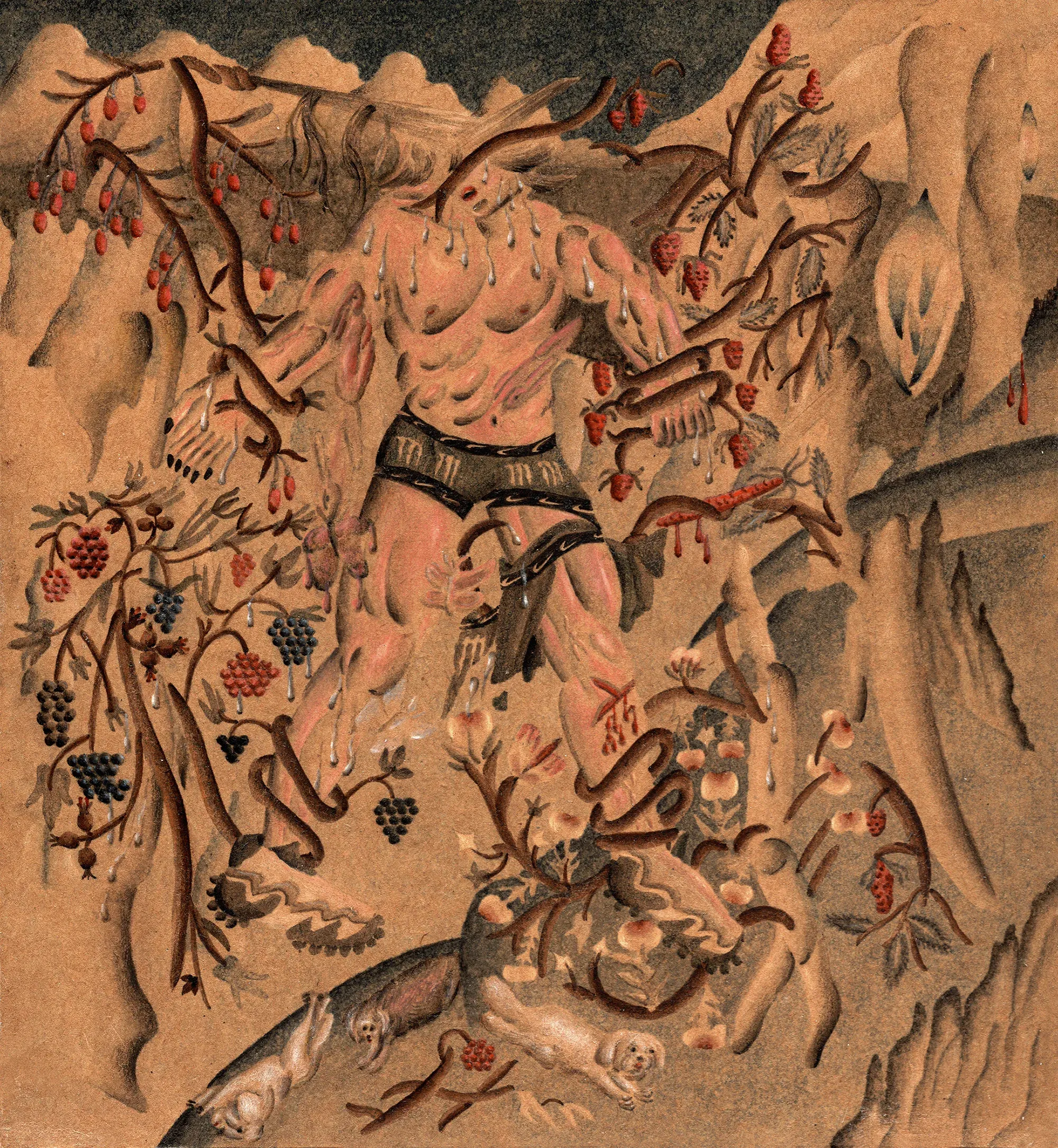
The result is a style that's as much at home in a modern gallery as it would be illuminating a medieval manuscript.

The Future, Drawn in Ink
As Georg Pinteritsch continues to evolve as an artist, one thing is clear: he's not content to color within the lines of conventional art.
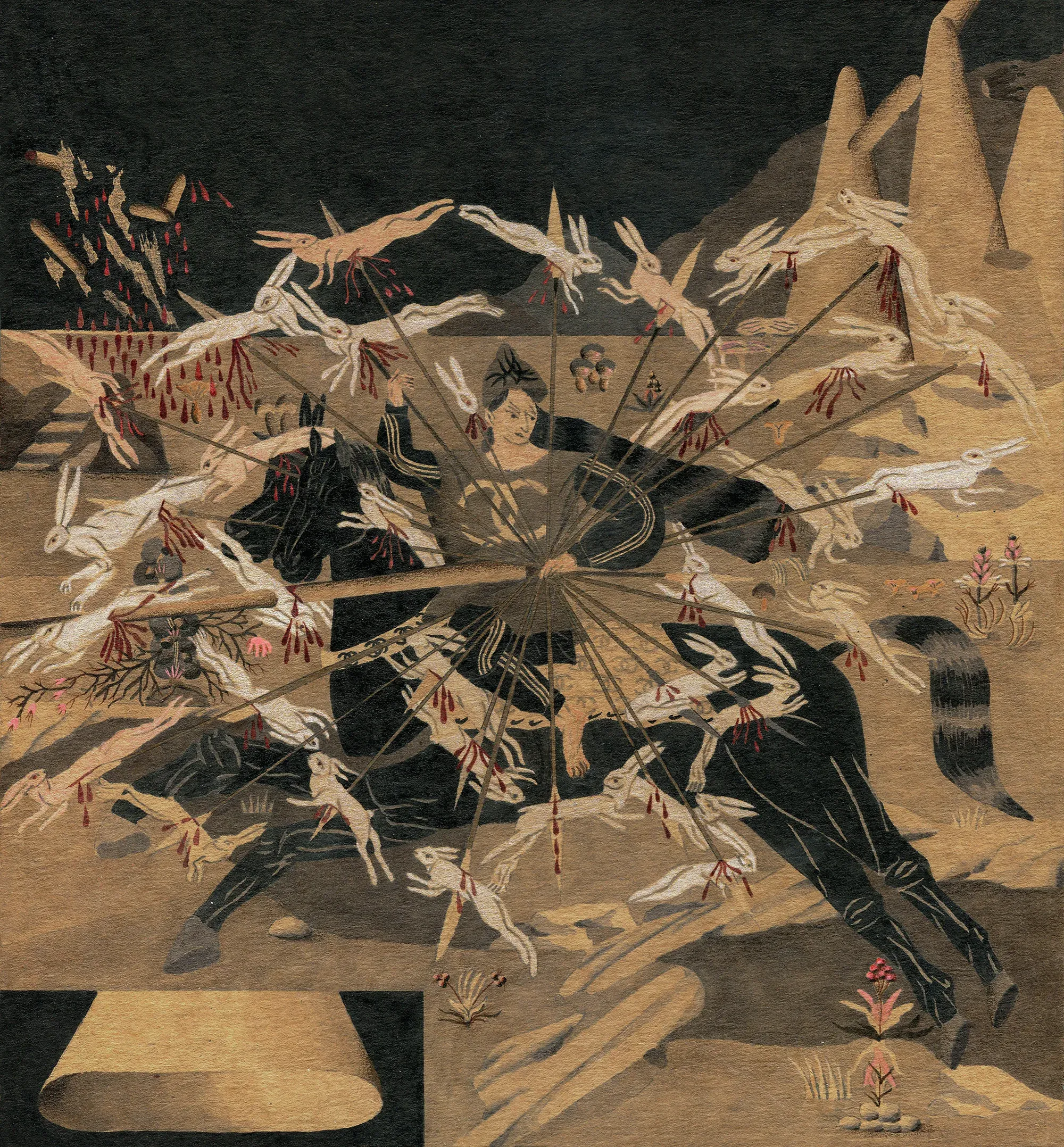
His unique blend of medieval aesthetics and modern abstraction, his dedication to slow, deliberate creation, and his playful exploration of line and form mark him as an artist to watch.
In a world that often seems to be moving too fast, Pinteritsch's work offers a moment of pause, a chance to lose oneself in the details.
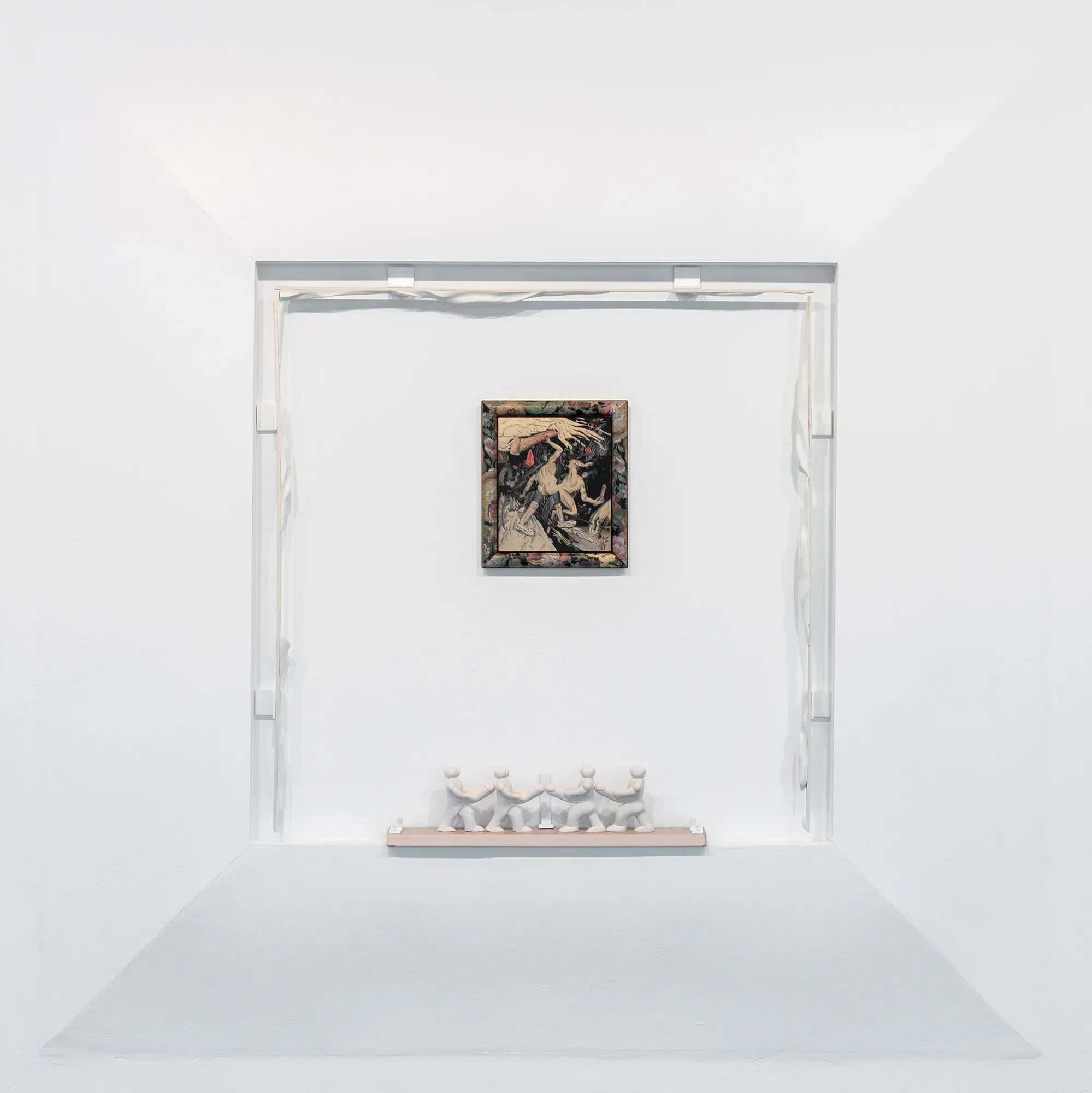
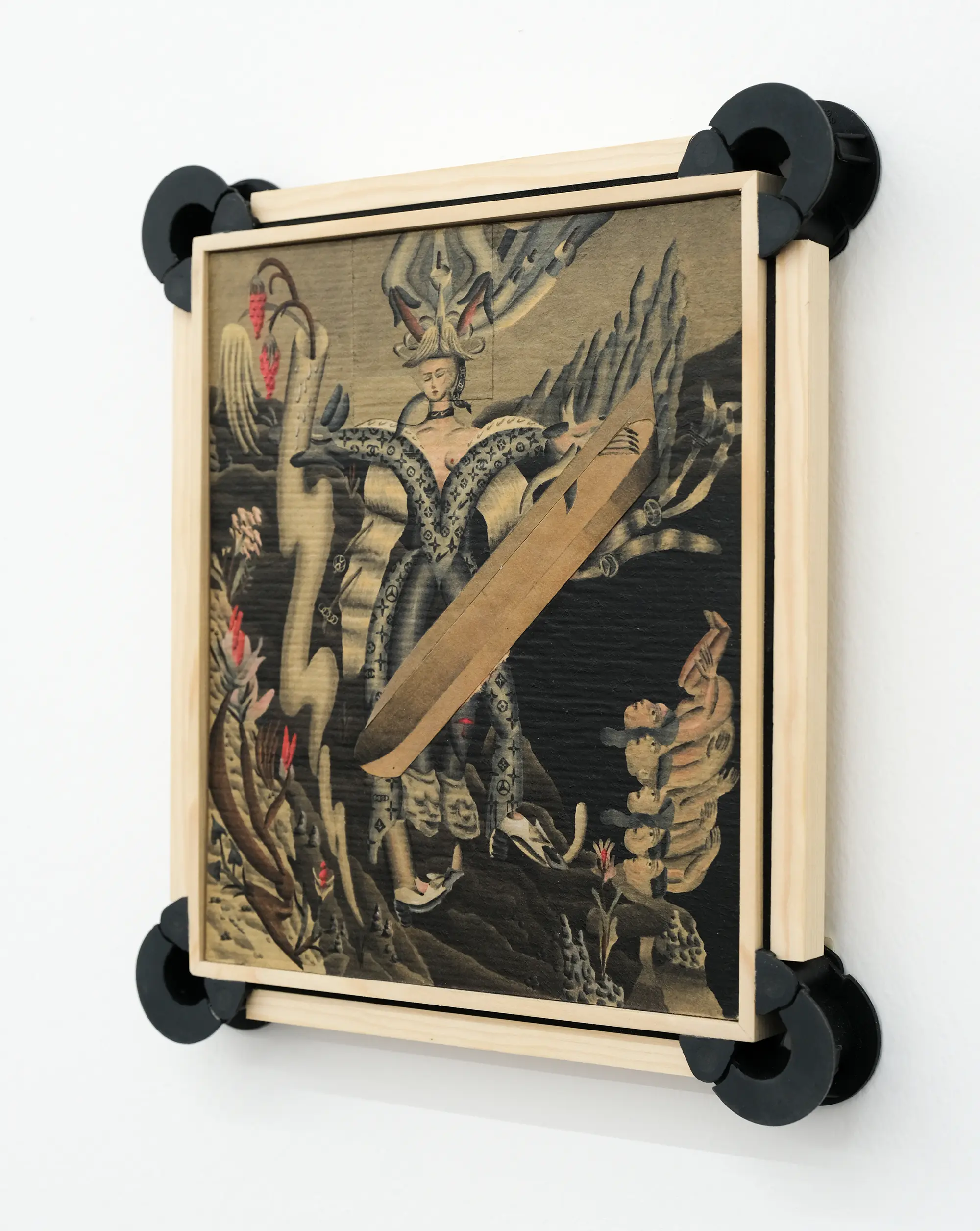
It's a reminder that sometimes, the most interesting conversations happen when we allow different eras, different styles, different ways of seeing the world to mingle and merge.
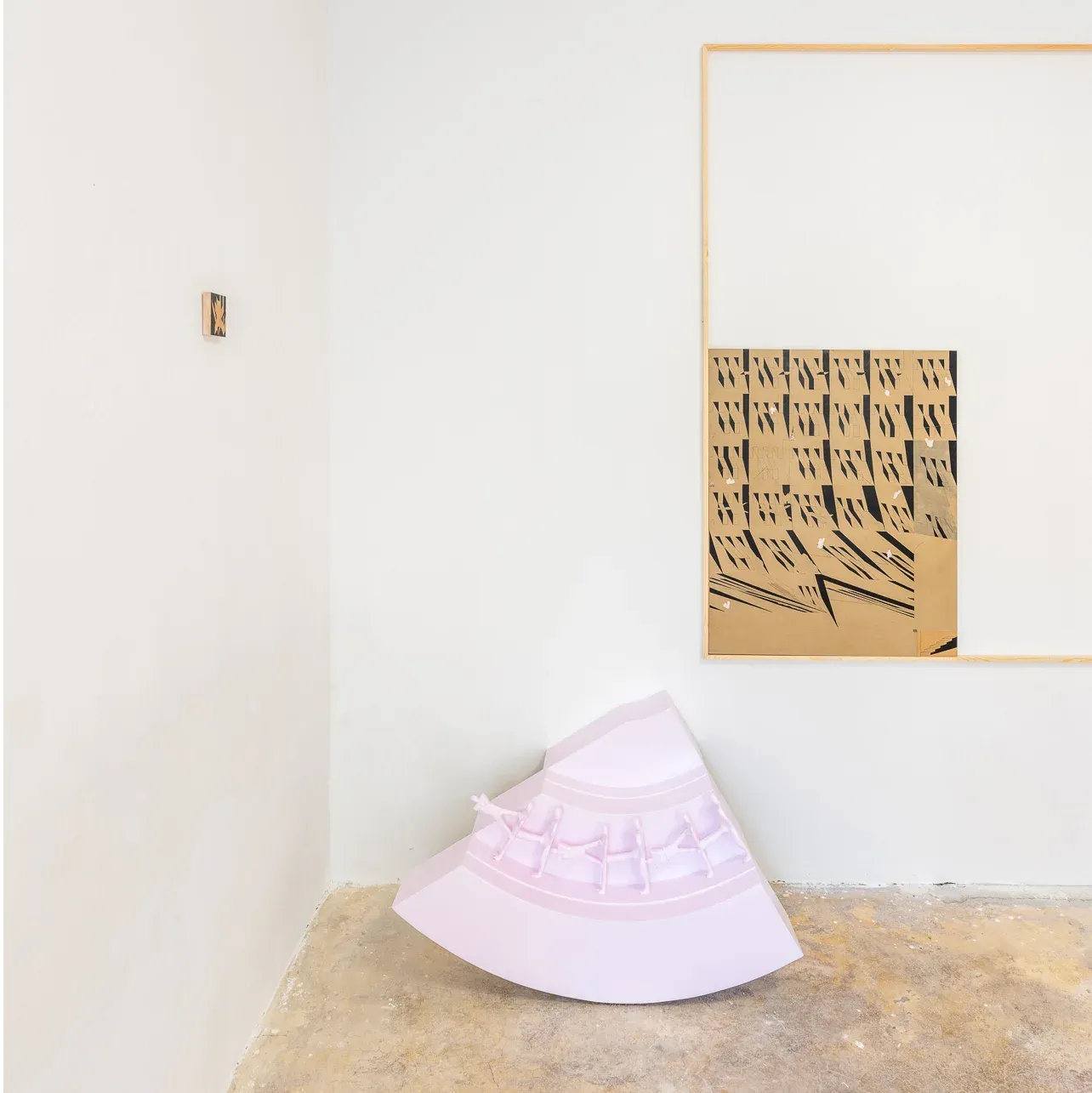
So the next time you find yourself face to face with a Pinteritsch piece, take a moment. Let your eyes wander along those meticulous lines. Allow yourself to get lost in the details.
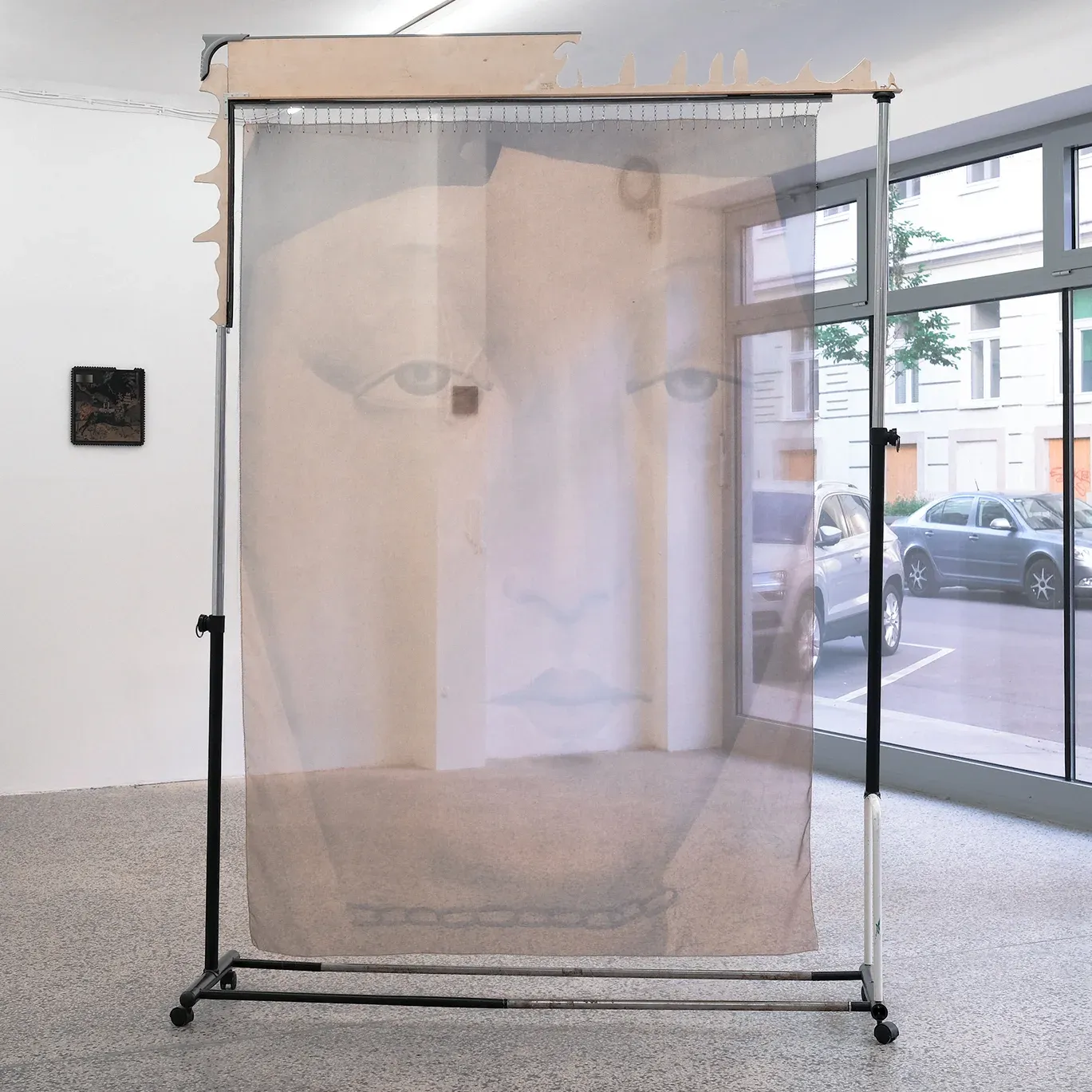
You might just find that in the space between medieval woodcuts and geometric abstraction, between past and present, there's a whole new way of seeing the world.
And isn't that, after all, what great art is all about?
More About the Artist:
Follow Georg Pintertisch on Instagram

Website Georg Pinteritsch
